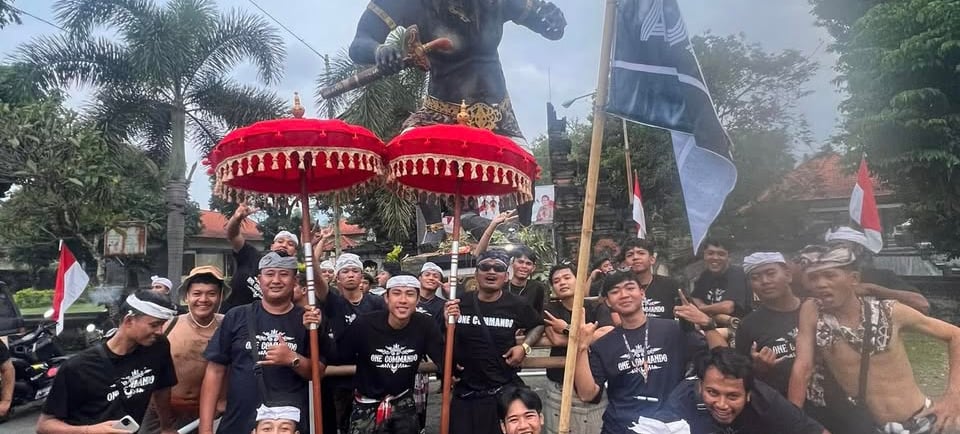Nyepi; Bali's day of Silence
Every year, Bali pauses for Nyepi—the Balinese New Year and Day of Silence. Rooted in Hindu tradition, this sacred day is marked by 24 hours of quiet, reflection, and spiritual renewal. In the lead-up, colorful Ogoh-Ogoh parades fill the streets with giant effigies before the island falls completely still—no flights, no traffic, no noise. For visitors, Nyepi offers a rare and moving glimpse into Balinese culture, inviting you to slow down, respect the tradition, and embrace Bali at its most serene. It’s a once-in-a-lifetime experience that reveals the island’s deep spiritual heart.
4/9/20254 min read


Understanding Nyepi: Bali’s Day of Silence
Bali, a land known for its vibrant culture, lush landscapes, and colorful traditions, celebrates many unique events throughout the year. Among these, Nyepi, also known as the Day of Silence, stands out as one of the most significant and fascinating traditions. This sacred day, which marks the start of the Balinese New Year, is a time for self-reflection, spiritual renewal, and community solidarity. Let’s take a closer look at the history of Nyepi, how it is celebrated today, and what tourists should know if they happen to be in Bali during this special time.
The History of Nyepi
Nyepi is celebrated based on the Balinese Saka calendar, which is a lunar calendar used primarily in Bali and parts of Indonesia. The day itself is observed as the start of the Balinese New Year and is considered a day of silence, fasting, and meditation. Traditionally, the day was meant for self-reflection and the cleansing of the mind, body, and soul.
Nyepi has deep religious significance, rooted in Hinduism. It is a time when the Balinese people seek to purify themselves and their surroundings, to start the new year with a clean slate, both physically and spiritually. It is believed that during Nyepi, the island of Bali "becomes empty" to appease the gods and drive away evil spirits. The day of silence is a powerful ritual that promotes inner peace and harmony, allowing both individuals and the community to reflect on their actions from the past year.
How Nyepi Plays Out Today
While the core values of Nyepi remain the same, the way it is observed today is a beautiful blend of tradition and modernity. The lead-up to Nyepi is marked by vibrant and lively Ogoh-Ogoh parades, where enormous, colorful effigies representing evil spirits are paraded through the streets and then burned in a grand ceremony. This symbolizes the purification of the island and the removal of negative influences.
However, Nyepi itself is a day of complete silence. For 24 hours, Bali comes to a standstill. The roads are empty, the skies are quiet, and even the beaches, which are usually full of tourists, are devoid of activity. It’s a day when the island's inhabitants, both locals and visitors, engage in personal introspection and spiritual practices.
What to Expect and How Tourists Are Affected
Nyepi is a unique experience for tourists, as it offers a rare glimpse into the island’s deep spiritual practices. The entire island of Bali comes to a halt on Nyepi, and there are some important things to keep in mind for those visiting during this time:
Restricted Movement: On Nyepi, all roads are closed, and transportation is not allowed. This means there are no flights, no public transportation, and even taxis are restricted. Tourists are encouraged to stay in their hotels or accommodations for the entire day.
Quiet Hours: The island observes absolute silence during Nyepi. No music, no loud talking, and even no television or other entertainment are allowed in public spaces. Lights should be kept to a minimum—many accommodations will keep their lights dim or covered to comply with the rules.
Respect the Tradition: As Nyepi is deeply rooted in spiritual beliefs, it’s important for tourists to respect the culture and practices surrounding the day. While it might feel strange at first, the day of silence is an opportunity to experience Bali in its most serene form. It’s a day of reflection, and tourists are encouraged to join in this quiet time, whether by resting, meditating, or simply enjoying the peaceful atmosphere.
No Activities: Most businesses, including shops, restaurants, and tourist attractions, close for the day. This means tourists should plan ahead and stock up on necessities before Nyepi begins.
Nyepi is not just a religious event; it’s a time of deep respect and reverence for the traditions of Bali. The local community treats this day with great respect and seriousness, understanding its spiritual importance. The preparation for Nyepi, including the Ogoh-Ogoh parade and the purification ceremonies, is done with great care and pride, and it’s a time for the Balinese people to come together as a community. Local often use Nyepi as a time to disconnect from the fast-paced world and focus on their spiritual growth. It’s a communal effort where everyone, regardless of their age, takes part in the rituals and practices that have been passed down for generations.
A Beautiful Tradition
While Nyepi might be a challenge for those who are used to the constant bustle of modern life, it’s an incredibly beautiful and peaceful tradition that allows visitors to see Bali in its purest form. It’s a reminder of the importance of slowing down, reflecting, and finding peace within oneself. The respect that the Balinese people show for this tradition is heartwarming, and it’s an experience that many tourists leave Bali deeply moved by.
In Conclusion
Nyepi in Bali is a unique celebration, where the island comes together to honor its spiritual roots and embrace a day of silence and self-reflection. While it might seem unusual for visitors, it’s a chance to experience the island in a truly special and peaceful way. By understanding and respecting the customs and expectations of Nyepi, tourists can have a memorable and meaningful experience during this extraordinary event. Whether you’re staying in your hotel, reflecting, or simply soaking in the serenity, Nyepi offers a once-in-a-lifetime opportunity to experience Bali in its most tranquil and sacred state.
